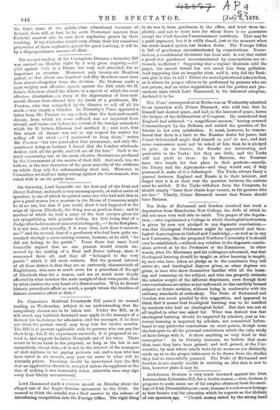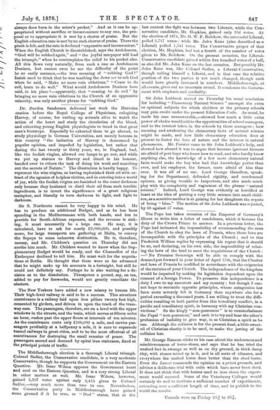Archdeacon Denison is very much incensed against the Irish Intermediate
Education Bill, for a double reason,—fi rat, because it proposes to make some use of the surplus obtained from the sacri- lege of Irish Disestablishment ; next, because it renders new homage to that fanatic zeal for education which he regards as the idolatry of our spurious age, "Church money seized by the etrobg hand
always does burn in the seizer's pocket." And as it can be ap- propriated without sacrifice or inconvenience to any one, the pro- posal so to appropriate it is met by a chorus of praise. But the English education rate is met by no such chorus of praise. There the pinch is felt, and the rate is declared "expensive and inconvenient." When the English Church is disestablished, says the Archdeacon, "God will be robbed again," and "the joyful ratepayer will lead the triumph," when he contemplates the relief to his pocket also. All this flows very naturally, from such a one as Archdeacon Denison, but cannot even he see the difficulty of the point he so easily assumes,—the true meaning of "robbing God ?" Isaiah used to think that he was teaching the Jews not to rob God when he said, "Make no more vain oblations," "Cease to do evil, learn to do well." What would Archdeacon Denison have said, in his place ?—apparently, that "ceasing to do evil" by bringing no more vain oblations to the Church of an oppressive minority, was only another phrase for "robbing God."



































 Previous page
Previous page